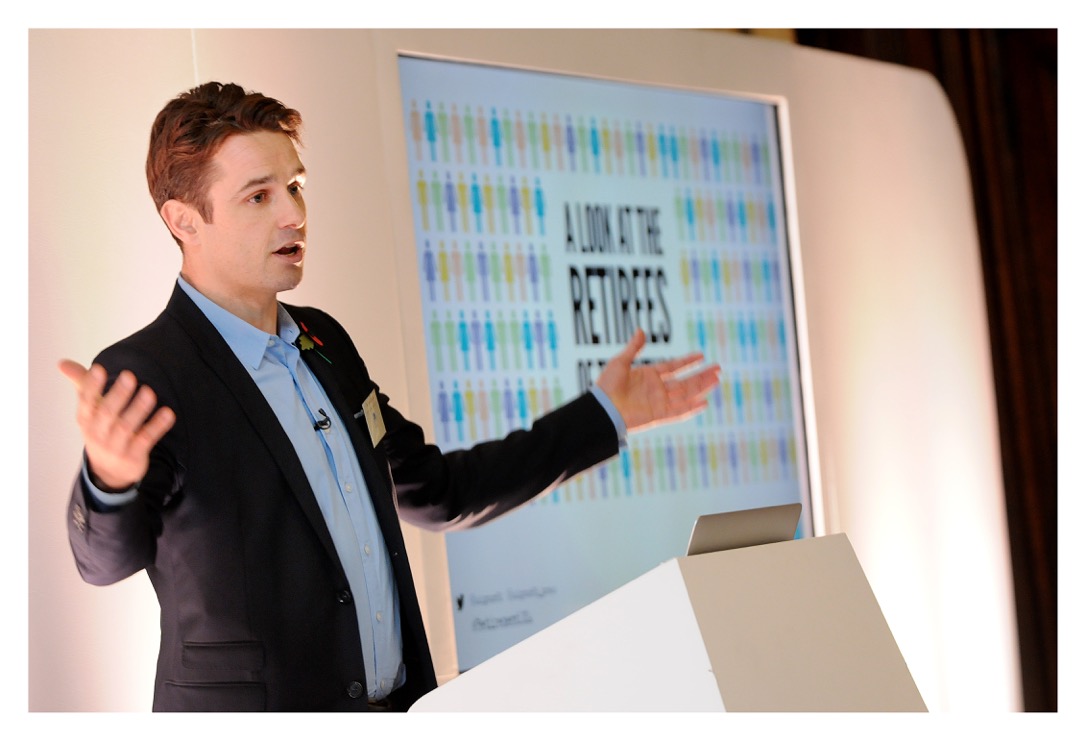Online finance for any type of car – put in the figures and see for yourself
Tag Archives: finances
Brain’s desire for ‘instant gratification’ can wreck future finances
Most of us prefer to the thrill of buying now rather than saving and safeguarding our financial future, according to new research from the Skipton Building Society.
But it may not be all our fault as our brains are not programmed to behave in our own best interests when it comes to money.
As part of a campaign to get under the skin of the nation’s retirees, it’s been revealed this week, by Skipton Building Society, that our brains could have a lot to answer for, when it comes to the nation’s lack of preparedness for retirement.
• Over 50% feel unprepared for retirement 10-15 years out
• 30% have no idea how much is in their pension pot
• Physiological testing illustrates people confused about their futures
• Desire for immediate gratification creates barrier to financial planning
• Our brains need to be retrained to create stronger financial futures
As part of their DNA of Retirement research undertaken earlier this month, (which is believed to be a first for UK financial services) physiological responses were explored to provide a 360 degree insight into hopes and fears surrounding retirement and financial planning for our futures.*
It was revealed that over 50% were feeling unprepared for retirement at 10 to 15 years out, with 30% having no idea how much money is in their pension pot. Worryingly, nearly a quarter of people revealed they don’t have a retirement plan. Overall, anxiety was evident as nearly two thirds of retirees lacked the confidence that they are financially prepared for their retirement.
In follow up, Skipton, the UK’s fourth largest building society, has been working with leading neuroscience consultant and published author of best selling book‘Sort your Brain Out’, Dr Jack Lewis. Together, they can now reveal further insights from the analysis of the research data, which shows that our neurological programming could be a huge stumbling block in our pension planning.
Dr Jack said: “Our brains are not designed to ensure we are financially prepared for the future. In today’s fast paced world our brain is still tuned into instincts honed several millennia ago which encourage us to seek immediate gratification. If I offered a room of people £100 cash today, or £150 cash in a month, the majority would take the “safe” instant £100. This is because our brains are biased in favour of any decisions that give us a quick return. Of course, if we allow every financial decision we make to fall into the ‘live for the moment’ trap – then clearly the nation’s financial preparedness for retirement will be in a dire state.”
This is accentuated even further if we are not clear what our futures look like and confusion around our vision was also a key finding of the DNA of Retirement research. Most people, when questioned, described clear and inspired plans, covering aspirations from wing walking to starting new businesses. However, 64% of people’s physiological responses contradicted their stated desires. For example, what they said they wanted and what their subconscious revealed they wanted were different things.
Other findings of the research were that a significant proportion of the respondents were very aspirational about their futures, and the aspirations they had for retirement were quite elaborate. However, it didn’t appear that these dreams were matched by financial preparedness, thus illustrating a HUGE risk in terms of financial stability of our futures.
Dr Jack added: “The brain is a complex organ. We can shape it and mould it according to any behaviour that we regularly, intensively and consistently perform. However one critical step that is often overlooked is the need to consciously steer ourselves towards behaviours that yield the best return in the long run. As a general rule we tend not to care much for the best interests of our future selves. It is important to spend time vividly imagining the big picture to focus our mind on long term goals. If we never take the time to think about what kind of lifestyle we want to be living in retirement, then we simply have nothing to set our sights on. Asking people to financially plan for something that their brain is not emotionally engaged by is a big ask when we have so many immediate financial concerns. We can re-wire our brains by adopting new habits but to do this we first need to subtly alter our behaviours, beliefs, and motivations according to the best interests of our future selves.”
As part of their commitment to supporting people in and approaching retirement Skipton has launched a free Retirement Review** service in all branches nationwide, where people can call in and have a chat with a financial advisor to help them start to picture what kind of retirement they want, to then help them plan for it. They are also developing a persona app to help people visualise their future based on their own personal Retirement DNA, which will be rolled out in branch in the coming months.
David Cutter Group Chief Executive of Skipton Building Society, said: “Our research has revealed some worrying trends – we cannot have a country bursting with aspiration whose hopes will then be struck down by apathy or aversion to financial planning.
“As a mutual, we were established 161 years ago to help tackle the prevalent social issue of the time – helping ordinary people to build their own homes. Through our new retirement service, we’re bringing this ethos bang up to date by tackling THE financial issue of today.”
Skipton, the UK’s fourth largest building society, is keen to gain a true understanding of people’s retirement wishes, in order to be able to help them realise their goals, in line with its new Retirement Service.Skipton is currently offering a free will for anyone who has a free Retirement Review in any of its branches.
Escaping Debt & Poverty – new ebook guide
There’s no point in denying it; tens of millions of people are having their lives ruined by painful debt or poverty. One side-effect of this crippling affliction is the apparent lack of control and inability to stop further decline. Thankfully, philanthropist Tony U S Okwum has the answer, and it’s stupidly simple.
Everything is exposed in his new book, ‘Escaping From Debt & Poverty’, which opts for proven everyman strategies instead of official advice from the government and financial controllers who only have their best interests at heart. According to the book, poverty is a mindset and not a circumstance – and anyone now has the ability to finally understand money and its direct relation to life’s purpose.
Synopsis:
This is the right book for the right moment. This is the right book on a mission to change your life. For those who are perpetually in debt and experiencing heavy blows from money, this is the right book for you and for those who want to come out of poverty, this is for you.
Do you want to maximize what’s inside of you? Do you want to see your potential come to light? I strongly believe that this book will reshape and rebuild you to the real person you always wanted to be by overcoming financial debt and poverty.
Your greatest enemy in life is the wrong information that has settled in your subconscious mind which has made you to believe that you can never come out of debt and poverty. And this has almost made you to give up. In this book is the solution to that chronic problem- debt and poverty. The economist won’t educate you better and the government won’t tell you the truth, but this book will always lead you along the right path.
“The truth is that people already have everything they need inside of themselves; the key is to change their mind-sets and thought patterns surrounding money. They have to hate poverty enough to want to change it!” explains Okwum. “So-called professionals won’t be of any help, but my book will. Everything has been heavily tested and is unique as it has the readers’ best interests at heart. There’s nobody else trying to make money or pick up commission. That’s a rare thing these days.”
Continuing, “At the end of the day, it all comes down to control and if people want money to be their master or if they want to make it their servant. If someone’s money controls them, a simple shift in power is all that’s needed. When we change the old the new can come in to replace it, but the two can’t co-exist. The blueprint for doing just that is waiting. Become your own personal entrepreneur; if we all did it, the world would be a richer place.”
Readers agree, leaving positive reviews.
Sonia Andrews comments, “These days when everybody is hard hit financially. And the truth is that people just don’t know how to come out with solution and the government is not making it easier either. They are clueless. This book takes you into the world of financial reality. It’s straight to the point and blunt. This book is something you really need to have as an asset. Debt and poverty is crippling. This book is the real deal. It has highly enlightened and empowered me. Now I’m completely transformed after being trained and educated by this book. I can now recommend this book to anybody of any age. This little book has great power in it that can transform your financial life and affect your potential positively.”
Click on this image to buy the Kindle editiion at Amazon for only £1.99
Britain’s nation of holiday money hoarders
Almost half of us returning from holiday with foreign currency squirrel it away with a plan to use it for the next trip, rather than bother with the hassle of shopping around for the best exchange rates to convert it back into Sterling. This is according to a survey of over 2000 holidaymakers by ICE – International Currency Exchange, the leading travel money provider.
• Almost 50% of UK travellers hoard holiday money at home
• 1 in 3 spend it at the airport
• Only a third bother converting it back to Pounds when they arrive home
Taking the pain out of organising currency conversions back into Sterling, the ICE Buy-Back service allows travellers with left over foreign currency, to get an exchange rate quote via text.
According to the ICE survey, 49% of UK travellers come home with currency and do nothing with it. In contrast, only 3% give unspent local currency to charity, whilst 12% use it to tip hotel staff**. Just under a third convert their holiday money, when they get home, while the same proportion will fritter it in the airport lounge and gift shops. Only 16% would spend it on gifts for loved ones.
Koko Sarkari, Chief Operating Officer of ICE, says, “Based on the national survey findings, we conducted a poll amongst our customers to find out how much foreign cash they are hoarding – 66% admitted to having over £50 worth of foreign currency at home**.”
“If exchange rates were favourable when the currency was first ordered and another trip’s on the cards, you can understand why you wouldn’t rush to convert leftover holiday money back into Sterling. But with almost half of us hoarding foreign cash, the hassle factor probably plays a big part in the decision not to convert it back. At ICE, we completely understand this and that’s why we launched our text based buy-back service, providing a quick quote for any currency we sell – whether the customer ordered it from us or not. This hassle-free service means customers will know exactly what they will get and all they need do is pop in to one of our branches and complete the transaction.
Customers should simply text SELL followed by the amount to 07786 207 053 and ICE will respond with a no obligation quote.
What do you do with your leftover holiday currency?
CHOICE %
- Nothing, save it for my next trip 49%
- Convert it when I arrive home 32%
- Spend it at the airport 32%
- Spend it on drinks or a meal 18%
- Buy gifts for family/friends 16%
- Use it to tip staff 12%
- Give it to charity 2.7%
*Source: ICE survey of 2,062 UK adults conducted by Consumer Intelligence 5-11 March 2014
**Sample of 248 ICE customers – September 2014
Is your pension a mousetrap?
Final salary pensioners are being urged to explore options to mitigate risks posed by the growing pension deficit threat, following reports of a potential cheese share-price war in the UK.
The warnings from Reece Fallaize, Global Technical Adviser at deVere Group, one of the world’s largest independent advisory organisations, come after shares in Dairy Crest, makers of Cathedral City cheese, tumbled on Friday following reports that it could face increasingly strong competition from supermarket brands.
Mr Fallaize explains: “To plug a blackhole in its pension scheme, last year Dairy Crest put £60m worth of cheese into the fund. Therefore, pension members maybe negatively affected should the market value of cheese fall.
“Potentially, pension members may see the scheme’s funding decrease which in turn could lead the trustees of the scheme to make some amendments to members’ benefits to reduce the pension liabilities.”
He continues: “This example of how a possible cheese price war could hit retirees’ income should offer a wake-up call for all members of final schemes.
“Despite rising equity markets and global outlook looking relatively rosy, companies are still struggling to fund their pension schemes.
“The pension deficits for FTSE 350 companies reached an all-time high of £113bn at end of May 2014.
“It is important for pension members to understand exactly what represents a risk to their pensions and how these can be mitigated.
“In the same way people have their cars regularly serviced, it is now more important than ever that individuals seek independent advice on an annual basis to ensure that they fully understand their pensions and how much they are likely to receive in retirement.
“Regularly reviewing and taking action, where appropriate and possible to do so to keep on track with your financial planning strategy, will mean that you’re less likely to receive an unwelcome financial surprise when you come to retire.”
Protecting your family if cancer strikes – video news

London: One in four cancer patients have difficulty keeping up with everyday payments. Learn how to keep your family financially safe in our video below.
We all worry about our health to a certain degree, but when it comes to more serious issues such as cancer it’s still easy to take an ‘out-of-sight, out-of-mind’ approach. While many of us will know a female friend or family member who has been affected by the disease, we may still think it will never happen to us. Yet over 45,000 women across the UK are diagnosed with breast cancer each year, that’s more than 100 British women being diagnosed on a daily basis, and three quarters of women affected are under 70 years of age.*
High profile celebrity cancer patients have helped increase public awareness in women’s cancer. This combined with the positive changes to the way such issues are now talked about in society, and improvements in technology has lead to earlier diagnosis, meaning more women are able to successfully fight the disease. Breast cancer survival rates in particular have improved dramatically over the last 20 years – 8 out of 10* of us would survive if we were diagnosed today.
Yet any one of us could be struck down with cancer at any time – contrary to popular belief, the disease does not just affect those with a family history or poor lifestyle. And it’s not just the health and emotional demands we need to think about, but the financial implications as well.
Many of us are unaware of the financial consequences a cancer diagnosis would have on our lives and family. With having to take time off work, many patients find themselves without enough money to cover the things we take for granted in good health, such as paying for bills or childcare costs.
According to Macmillan Cancer Support, one in four cancer patients admit having difficulty keeping up with payments whilst fighting the disease – with many suffering real financial hardship. It’s a stress we could all do without at a time when we should be concentrating on getting better.
For expert information on the risk and causes of female specific cancers, and how to insure you have the financial help you and your family need should you be diagnosed with cancer, watch the video below.
* Cancer Research UK
For more information visit www.wellwomanplan.co.uk




